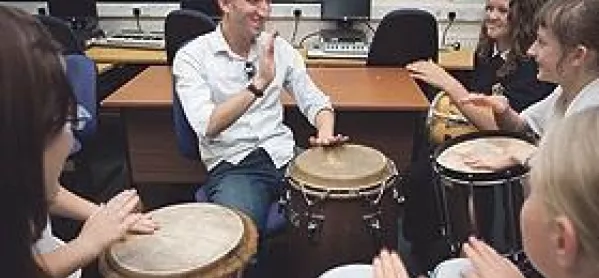Government cuts to teacher training numbers have forced seven PGCE courses to close, with dozens more under a “death threat”, according to lecturers.
Courses in RE, art and design, music and business studies have been axed after the Government cut places on the worst-hit courses by almost half.
Many remaining courses now have fewer than 10 places, raising concerns that they will not be sustainable in the long term.
Education secretary Michael Gove has reduced the number of secondary trainees starting courses this September by almost 14 per cent. However, this is not proportional across all courses, with business studies places down by 45 per cent, art by 40 per cent, and music and RE by about 30 per cent.
Numbers for some shortage subjects such as modern foreign languages, chemistry and physics have risen substantially.
Duncan Cullimore, chief executive of the Economics, Business and Enterprise Association, said: “What is happening now is almost every business education PGCE course has four, five or six places. We are very concerned about the situation.
“We think the future of more courses is not viable. Universities are trying to keep them going for as long as they can, but that will be very difficult for them.”
The courses that have been forced to close include PGCEs in music at London University’s Goldsmiths, Roehampton University and Southampton University; business studies and art and design at Roehampton; and RE at Hull University and Warwick University.
The decisions were taken after “horse-trading” between institutions. Allocations were swapped to ensure there were enough students to make courses viable.
Paul Hopkins, RE PGCE tutor at Hull, had offered eight “tentative” places for 201112 before the university decided to stop the course.
“Numbers have been halved on every RE course. I don’t see the coherence or philosophy in that,” said Mr Hopkins, who is also on the executive board of the Association of University Lecturers in Religion and Education.
“It is like the Government wanted to put the pressure on universities to close courses rather than make the decision themselves. The general vibe now is courses with student numbers in single figures have a death threat.”
Academics at Southampton had also tentatively offered places to music PGCE students before closing the course. They will now be offered places at Sussex University, which took on Southampton’s music quota in exchange for IT places.
“We wanted to keep as many courses open as humanly possible so trainees are not disadvantaged,” said Kate Green, Southampton’s programme director for secondary PGCEs. “These problems absolutely do not stem from universities themselves, but from the cuts in quotas.
“I believe some universities are keeping courses running hoping for place increases next year, but we have made sure all our courses are sustainable if quotas remain the same.”
James Noble-Rogers, executive director of the Universities’ Council for the Education of Teachers, said: “When courses close I hope places are being given to other providers, otherwise subjects are in real trouble. Numbers must remain in the system.”
A spokeswoman for the Training and Development Agency for Schools said: “Reductions in places available for allocation in 201112 have led to some providers considering consolidated provision in fewer subjects.”
TRAINING PLACES 201112
The losers:Business studies: 235, down 45%
Art: 320, down 40%
Music: 390, down 31%
RE: 460, down 30%
The winners:Physics: 925, up 79%
Chemistry: 1,070, up 22%
Biology: 840, up 20%
Foreign languages: 1,490, up 7%.

